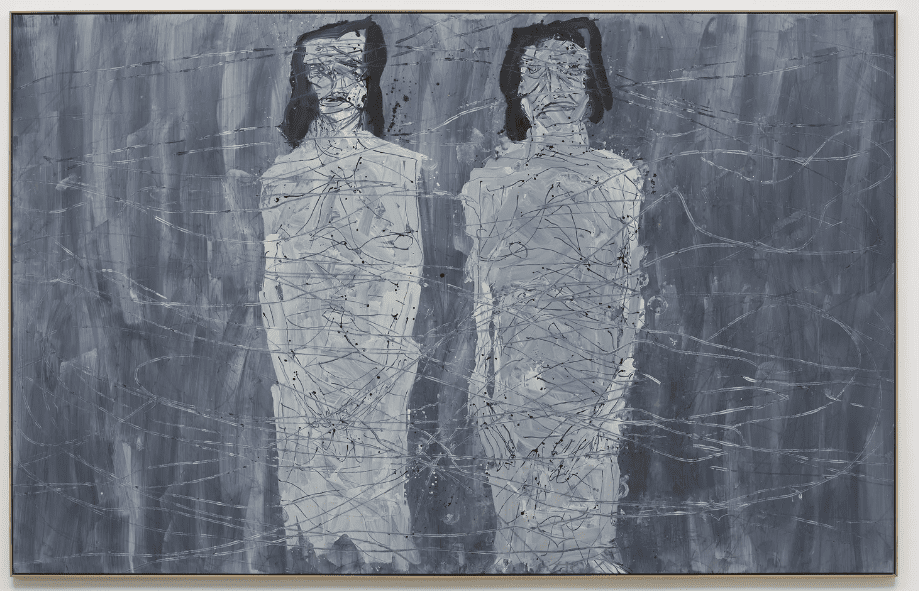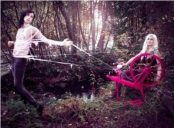Jono McCleery delivers a classic album in There Is.
SBTRKT, Jamie Woon, hell, even Radiohead. The fan of beguiling male vocals set against beats is suddenly well-catered for. Jono McCleery's There Is enters a subcategory of music which,whilst by no means glutted, certainly has its precedents. McCleery, a London-based singer-songwriter, is no less fresh or intriguing as the aforementioned acts. Emotional, unguarded and unashamed – this welcome movement might, with luck, roll back two decades' worth of landfill indie in which the only peer-accepted styles of singing for the red-blooded lager-drinking indie frontman were football-terrace anthemic and tongue-in-cheek regional. Here's hoping.
…it is a shock to the system to deal with an artist who is so straightforward.
This, McCleery's second album, produced by Fybe, weighs in at a hefty twelve songs, and will challenge listeners accustomed to the shuffle feature of their music players. Hopefully they'll take the challenge on, because the album rewards full immersion, and delivers the emotional narrative which all great albums afford an imaginative listener. There is soaring hope ('Stand Proud'); determined resilience ('Wonderful Life'); bluesy pain ('Tie Me In'); haunting whimsy ('The Gymnopedist') and lots of other adjective-noun combinations salting an album which is simply too rich to distil into text. What can be expressed, is that this is an album which deserves undivided attention and a suspension of skepticism. In a period in which music seems so often marketed beyond its merits, so insistently demanding of the attention, it is a shock to the system to deal with an artist who is so straightforward.
What does that mean exactly? Hard to pin down. What's his hook? What's his angle? Is he post-dubstep glitch-jazz? Is he a ukulele-toting nu-folker touring the world on his hand-luggage allowance? It's not a case of the lazy critic needing a genre name to fit him into, it's far more than that. The truth is that it's a mental jolt to accept the many nuances of McCleery's voice without first wanting to cut him down a touch. He's doing blues now, oh how very twee. Oh, he's moved onto crooning, that'll keep the teenage girls happy. Oh, what's this? Gospel! Oh mama, takin' care o' business! Save yourself the effort, because the purity of the man's talent dissolves cynicism like Cillet Bang goes through chicken grease.
It's just songs, pure and simple. Uncompromising songs, never dumbed-down or tweaked into something more typically commercial. Songs delivered in a voice which is relaxed and confident. No bells, no whistles. Singer-songwriter without the emotional baggage (wistful earnestness) or physical baggage (acoustic guitar, harmonica) typically associated with the title.
McCleery cites Jeff Buckley, John Coltrane and Bill Withers as inspiration, and their influence is clear. On the high notes, Buckley, on the low notes, Withers, and in the scatterbrain percussion and angular instrumental breakdowns, Coltrane. Oddly, in his almost nasal vocal delivery, sung as much from the palate as the throat, the name which might also be mentioned is Stephen Stills. Despite not having that sweet Texan drawl, or spending as much time on the high notes, the voice has swathes of Stills in it.
Setting voice against a insistent, almost intrusive percussion, is an approach which slips in and out of favour with the decades. Jungle, DnB, UKG, Breakcore they've each added their own flavour to the process, as have the countless genres which preceded them. In McCleery's case, the soft vocals and addictive rhythms of Bossa Nova keep coming to mind as the album plays out, especially on 'It's All' and 'Tomorrow'.
Another minor negative, if negatives must be unearthed, is McCleery's particular vocal tics.
At times the production is a touch overbearing. Not always, and only ever by a single element too much, but it is overcrowded at times. With a showpiece voice and such beautifully developed beats, a simple string or woodwind mid-range melody/texture is sufficient. Where Fybes lets the album down is in the moments where he adds another voice – usually a glassy synthwash. It's a niggle, and a particularly niggly niggle at that, but it does intrude. Another minor negative, if negatives must be unearthed, is McCleery's particular vocal tics. There is a touch of the Whitneys in the way he extends a note on occasion, sometimes holding out a single word to the length of a full line in a warbled arabesque. He's hardly alone in that, so much so that the habit now seems to be accepted as proof of a Good Voice. He does it only rarely, and for many listeners it's not an issue. For others, it is. And those are the negatives of the album, wrapped up into one paragraph, and happily put behind us now. Because, those nitpicky whinges aside, this is a phenomenal album. An instant classic.
Of the moments worth specific mention, the pensive extended intro to 'Tomorrow' is disarmingly beautiful. In a musical genre where strings, particularly violin, are used most often as a one-size-fits-all method for bringing a vague sense of drama or depth to a piece of music, it is very refreshing to hear the instrument used as a principal melodic voice rather than as aggregated backwash. Played as a fiddle rather than a violin, if such a distinction makes sense, the cadence is more Eastern European folk than classical. If the intro seems long, it all makes sense when it does finally segue into the jazz-inflected main body of the song. Such confidence of composition is exemplary, and is a recurring facet in the album. Setting the mood with the intro, softening the listener up to leave them all the more susceptible to the next emotion, then hitting them with it. Pure craft.
McCleery's interpretation of Black's 'Wonderful Life' is heavenly. Cover versions often take a couple of listens and a determinedly open mind before a listener accustomed to the original can fully accept the newer version. Not this one. Right from the outset it glitters, sharpening just about everything about the song. The conflicted emotions and contrast between hope and despair of the lyrics are clearer in McCleery's clipped delivery, and the focus of the instrumentation is much tighter.
…this is a phenomenal album. An instant classic.
Elsewhere, the percussion is the star. The beats on the album are always interesting, but on 'Fears' and 'It's All', they more than pull their own weight, driving the songs, but also earning their own place as quasi-melodic elements. Creating beats is easy with sequencing software. Creating beats which have something to say, is not. If that sounds like an anthropocentric way of thinking about staccato noises, think again. Good beats make it impossible not to tap a foot, great beats make you screw up your face in sheer delight. There are many of the latter in this album, and are one of the reasons why There Is will not simply disappear into the role of dinner-party background music. Nor should it – the album demands concentration, effort, and time devoted to the simple pleasure of listening. Recommended.
Jono McCleery – There Is, released on Counter, September 5th 2011
Image: Gem Pope

An observer first and foremost, Sean Keenan takes what he sees and forges words from the pictures. Media, critique, exuberant analysis and occasional remorse.














